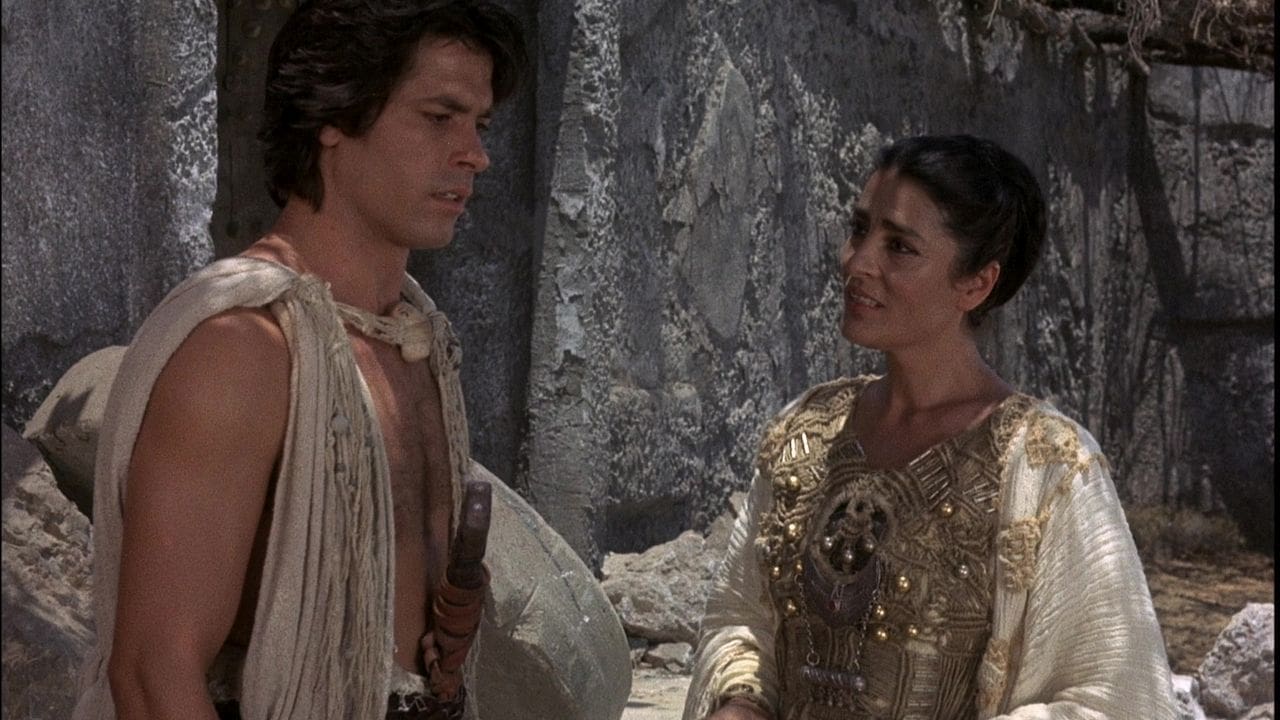Kirpianuscus
it is a masterpiece. sure, it is a subjective word and it is not easy to define it. it is a masterpiece because it has the science to give the emotion and spirit and tension of the play Iphigenia in Aulis. it is a masterpiece for the impressive performance of Irene Pappas. it is a great film for its unique, touching and admirable for the right manner to give life to a classic text. and for transform it in a personal story, beautiful and provocative and wise pledge for the discover of the roots of the right answer. a masterpiece. that is it.
Bellatrice
I agree with all the accolades, I went through a box of tissues watching this film. It had a gritty authenticity and rang true in every way.The question I'm about to raise represents a current sensibility regarding the treatment of animals. I had a very difficult time with the beginning slaughter of sheep and goats, and the dying deer with its pulsing neck and pooling blood as its life drained away was hideous.This is the age of "no animals were hurt in the production of this move." Iphigenia was made in the late 70's before the advent of computer simulation. Was it possible to fake these animal deaths? Or were these animals slaughtered for art?
Everett Jones
Though I've enjoyed reading most of the (regrettably few) Greek tragedies I'm familiar with, until now Aristotle's "pity and fear," his words for what successful tragedies are supposed to provoke in their readers, was only a concept to me. I had never experienced it myself, not from texts and certainly not from the few and universally mediocre productions I've seen of classical Greek tragedy. I didn't expect to experience it during this film adaptation either, which begins as a good-looking but emotionally overwrought melodrama. Somehow, though, by its end the movie has worked up to a level of emotional intensity that does justice to Aristotle's famous phrase. Iphigenia is about the Greeks' determination to reach Troy, and about the terrible decision that their commander, Agamemnon, is presented with by the gods as the price for doing this. After his men inadvertently offend Artemis by killing a sacred deer, the gods withhold favorable winds from the Greek fleet, stranding their ships, halfway to Troy, on the island of Aulis. In this version of the old myth, taking place in a Bronze Age warrior society but produced by a young and troubled democracy, the leaders- Agamemnon, Menelaus, Achilles- enjoy only a partial and shaky control over their men, who, tired of waiting without adequate food or supplies, are on the brink of mutiny as the story begins. Odysseus is portrayed here as less just another tribal chieftain than as a dangerously eloquent demagogue, further stirring up the troops with resentment against their leaders. In this tense situation, the Greek chieftains, particularly Agamemnon and his brother Menelaus, are relieved when the prophet Calchas announces that he has learned of a sacrifice by which they can appease the gods. Agamemnon's relief turns to horror, however, when he learns that the required sacrificial victim is none other than his own daughter, Iphigenia. He keeps this secret from everyone except Menelaus, while at the same time he summons Iphigenia to Aulis. Caught between a rock and a hard place, Agamemnon seems unable to come to a decision, or rather, to be trying to put off a decision until the last possible moment. Agamemnon's mistake is that in trying to keep his options- neither of them good- he ends up backing himself into a corner, where he no longer has any choice. In part Euripides seems to be showing how power can be as imprisoning as powerlessness. Agamemnon, Menelaus suggests at some point, has spent his whole life in pursuit of power, and now his ambitions are rebounding on him. The horrible dilemma with which he is faced drives the story forward. The story's drive is supplied by the horrible nature of Agamemnon's dilemma, and probably as a result, momentum is exactly what is missing from the movie's beginning. The film looks good throughout, and the foreign language helps stave off the overt kitsch which most mythological films fall prey to, but these early scenes are nonetheless pretty tedious. The filmmakers plunge us into the story's strange, alien world without giving us much of an emotional stake in the Greeks' dilemma. These problems seem to stem mostly from the inherent difficulties of adaptation. I've never read Iphigenia at Aulis, but considering the tight restrictions in time and space of the Greek theater, I would assume that much of the script is of the filmmakers' own invention. The director tries to keep things cinematic, but really the film is at its best when it sticks to the text, and to dialogue-heavy exchanges between the characters. The movie only starts to really work when Iphigenia and her mother arrive at the Greek camp. Up until then the scenes, consisting as they do of exchanges between burly, armor-wearing, almost indistinguishable Greek warriors, tend to feel a little flat, so the introduction of the slight, delicate-looking Iphigenia brings a new note of dramatic contrast that grounds Agamemnon's dilemma in reality- it's an obvious but very effective device. As word spreads among the characters of the nature of the planned sacrifice, Agamemnon almost fades into the background of the story, and his dilemma takes on a life of its own. Once the army has learned of the gods' demand, Iphigenia is doomed. Considering that I already knew the outcome, Euripides's play and the filmmakers' adaptation does a remarkably good job of sustaining the tension and suspense to an almost unbearable degree. As Iphigenia comes closer to that inevitable ending, I finally understood what Aristotle meant by "pity and fear." It may not be pleasant, but it is a riveting experience that left me somewhat shaken, and certainly rather subdued, after it was all over.
dismalland
I saw this film two years ago in my history class, and have rented it five times since then. Irene Papas leads a strong cast in this adaptation of Euripides' play "Iphigenia at Aulis". The beautiful cinematography adds the perfect tone to Papas' frantic search for clarity in a moral dilemma. Papas displays her great talent as an actress, playing the noble queen, the betrayed wife, and terrified mother. A great film.


 AD
AD

